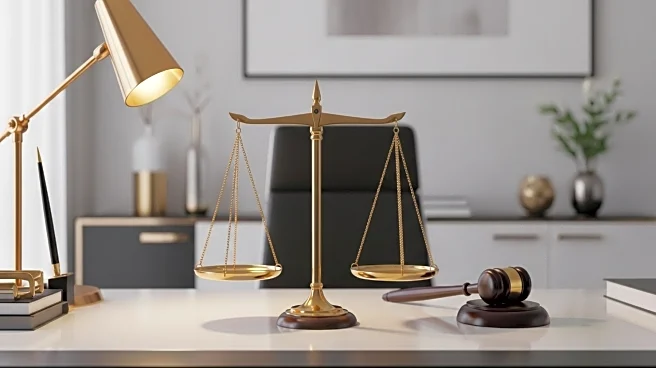What's Happening?
The Schall Law Firm has initiated a class action lawsuit against Luminar Technologies, Inc., alleging violations of the Securities Exchange Act of 1934. The lawsuit claims that Luminar made false and misleading statements to the market, which led to investor losses. The class period for affected investors spans from March 20, 2025, to May 14, 2025. The lawsuit highlights concerns about the conduct of Luminar's CEO and Chairman, Austin Russell, which prompted an investigation by the company's Board of Directors' Audit Committee. The potential removal of Russell from his positions could adversely affect Luminar's business practices and reputation.
Why It's Important?
This lawsuit is significant as it underscores the potential impact of corporate governance issues on investor confidence and company reputation. If the allegations are proven, Luminar could face substantial financial and reputational damage, affecting its ability to retain customers and maintain its market position. The case also highlights the importance of transparency and accountability in corporate communications, as misleading statements can lead to legal challenges and investor losses. Shareholders who suffered losses during the class period have an opportunity to seek compensation through this legal action.
What's Next?
Investors who purchased Luminar securities during the specified class period are encouraged to contact the Schall Law Firm before September 22, 2025, to discuss their rights and potential participation in the lawsuit. The class has not yet been certified, meaning affected shareholders are not currently represented by an attorney unless they take action. The outcome of the investigation into Austin Russell's conduct and the subsequent legal proceedings will be closely watched by stakeholders, as it could influence Luminar's future business operations and leadership structure.
Beyond the Headlines
The lawsuit against Luminar Technologies, Inc. may prompt broader discussions about corporate governance and the responsibilities of executives in maintaining transparent and honest communications with investors. It also raises questions about the role of audit committees in overseeing executive conduct and ensuring compliance with securities regulations. The case could set a precedent for how similar allegations are handled in the tech industry, potentially influencing corporate policies and investor relations strategies.










